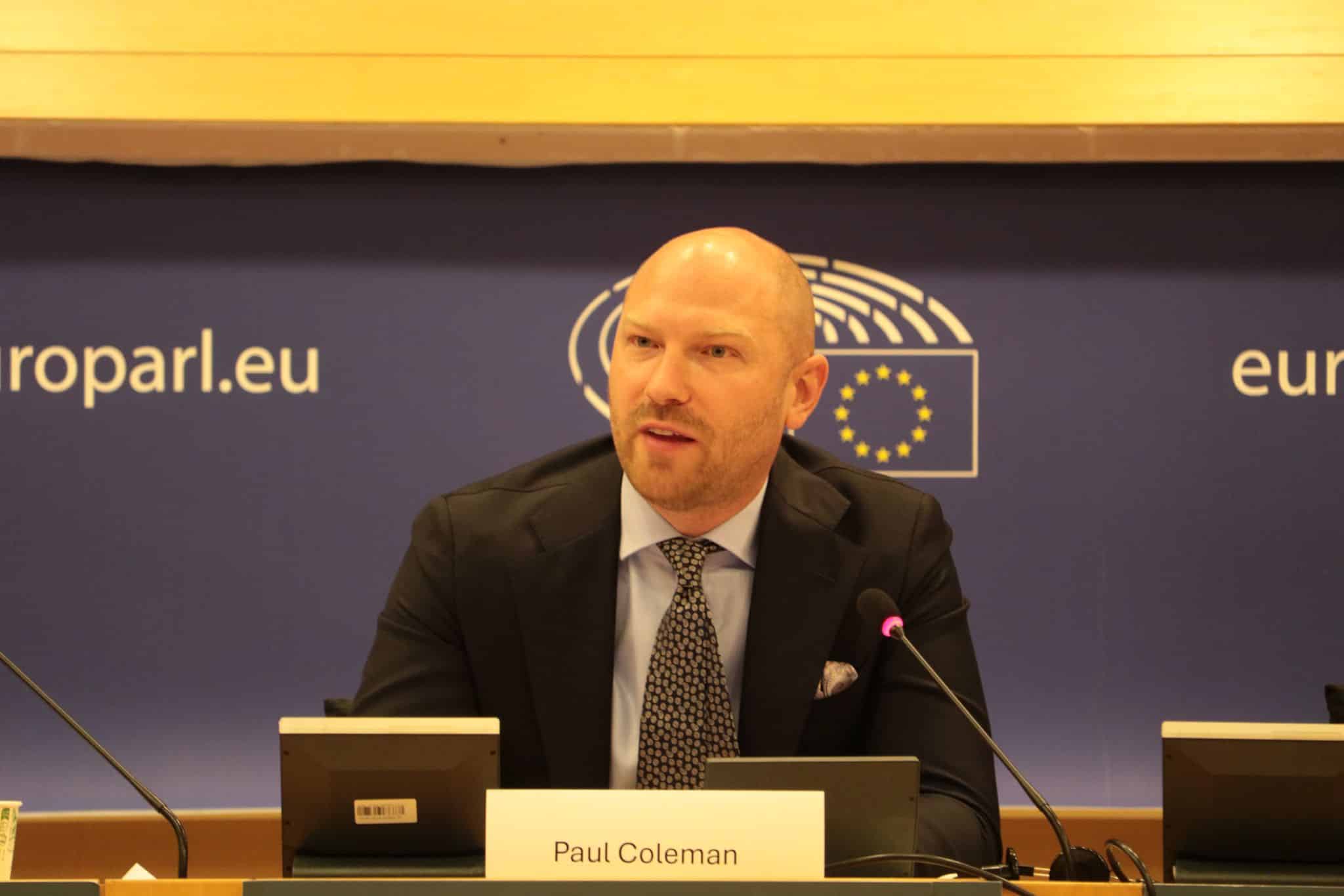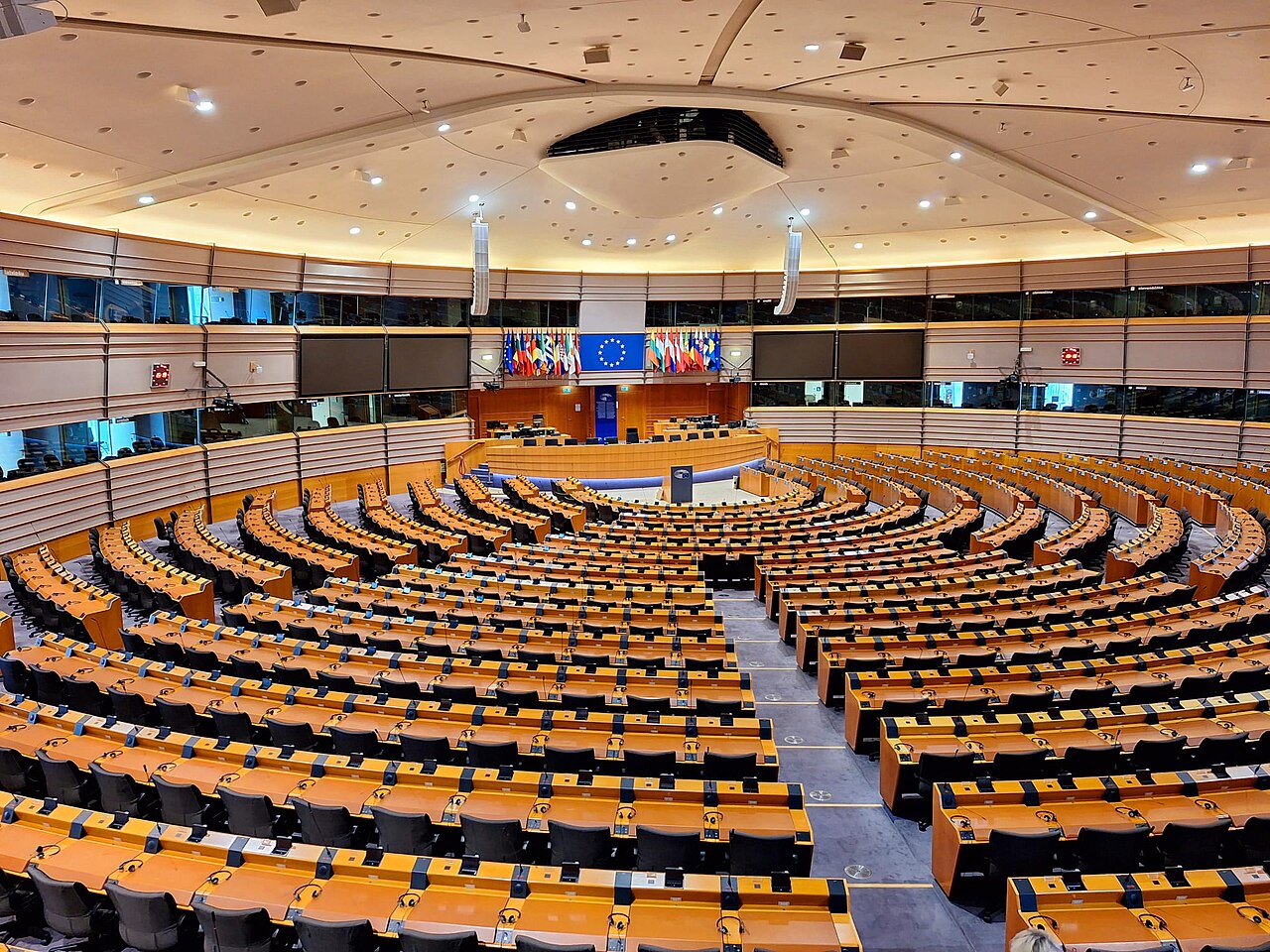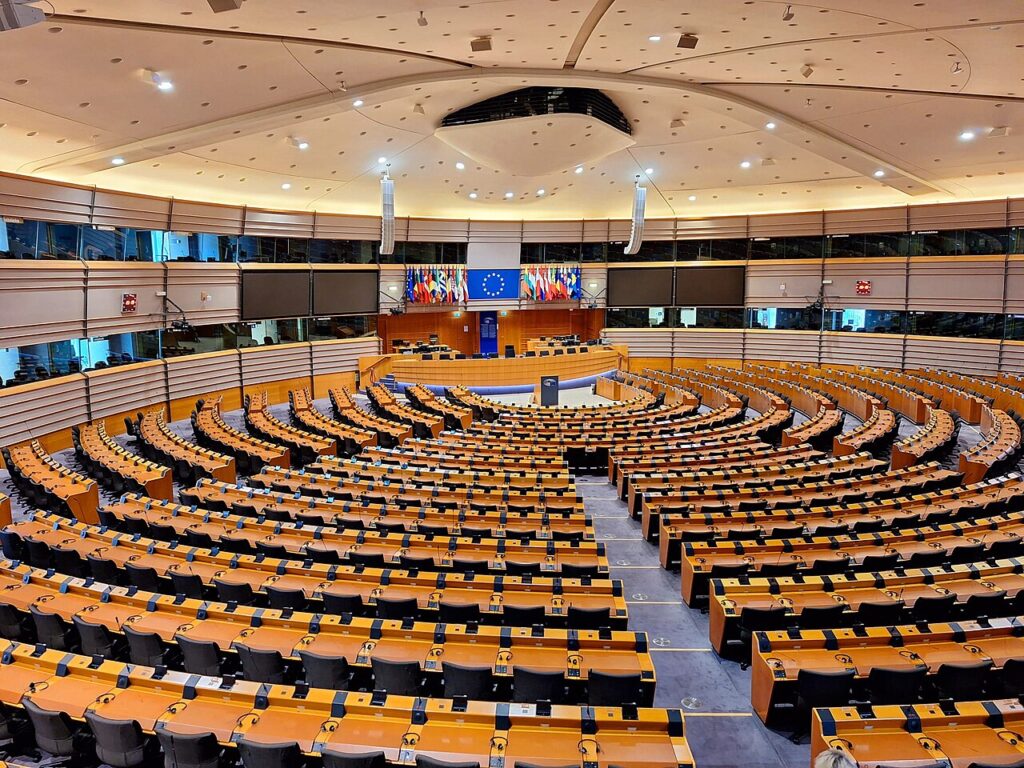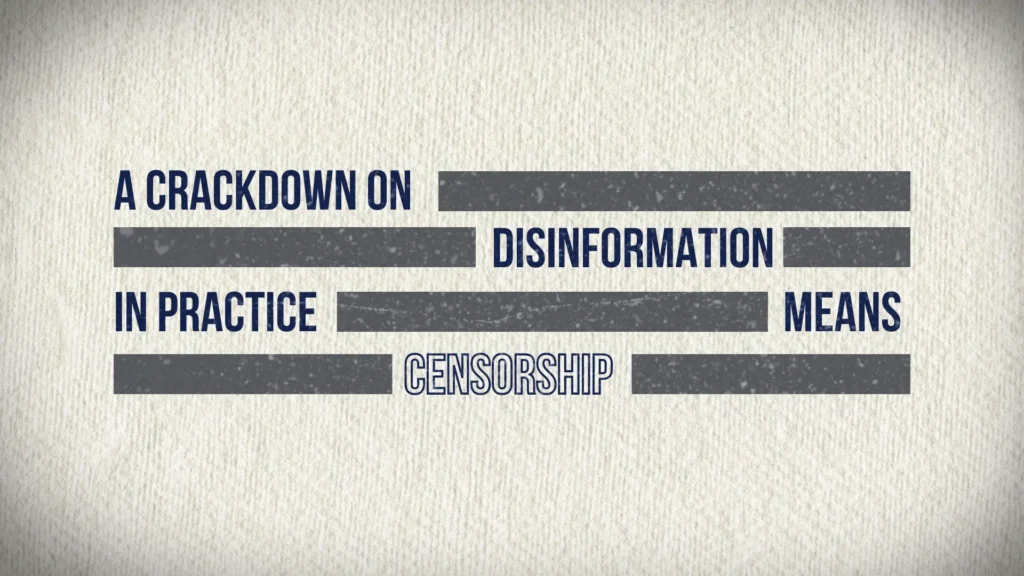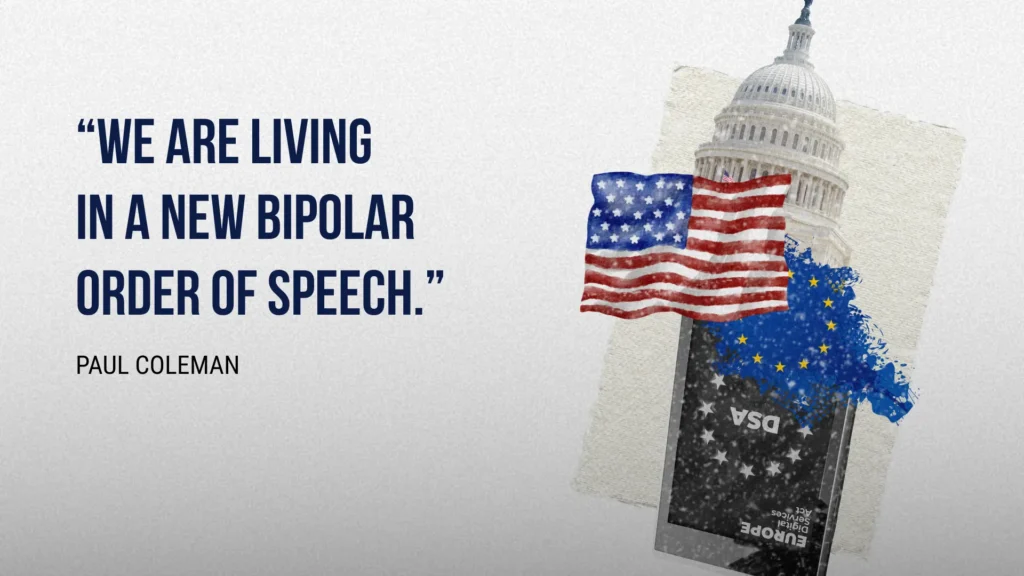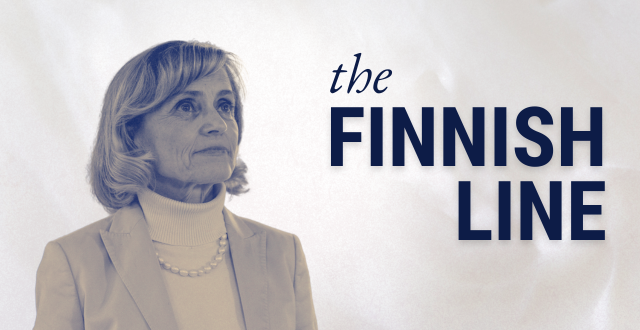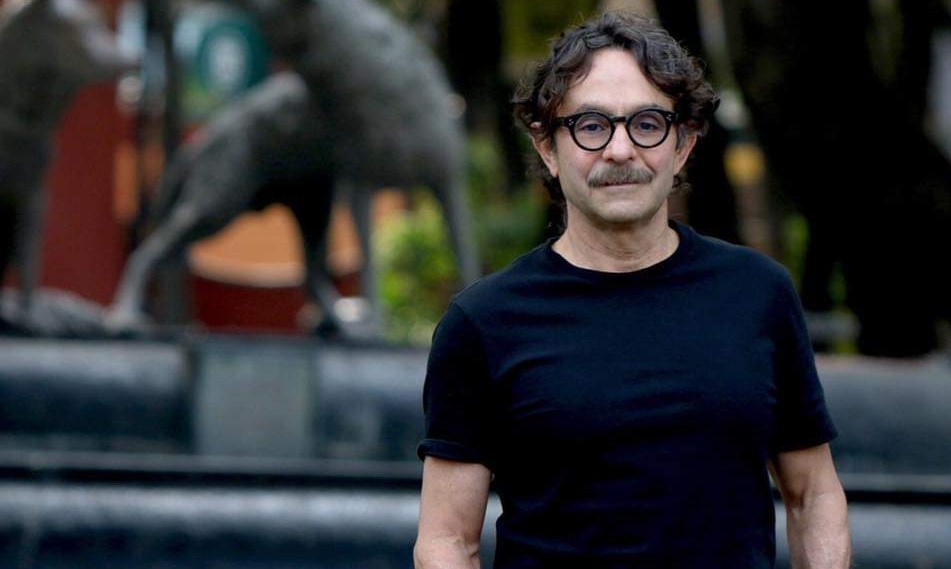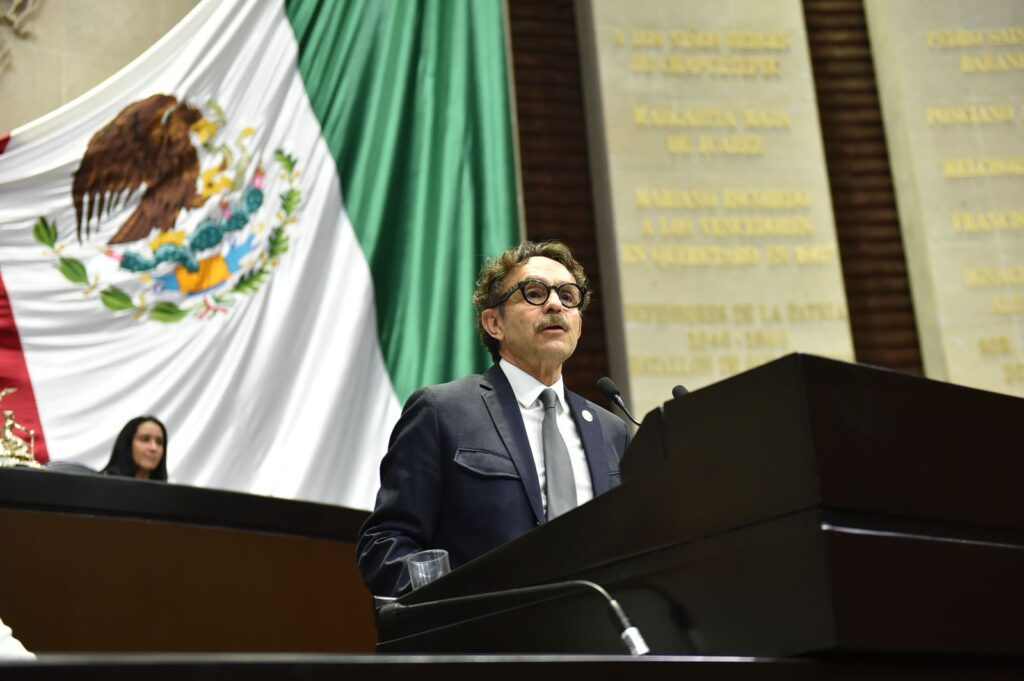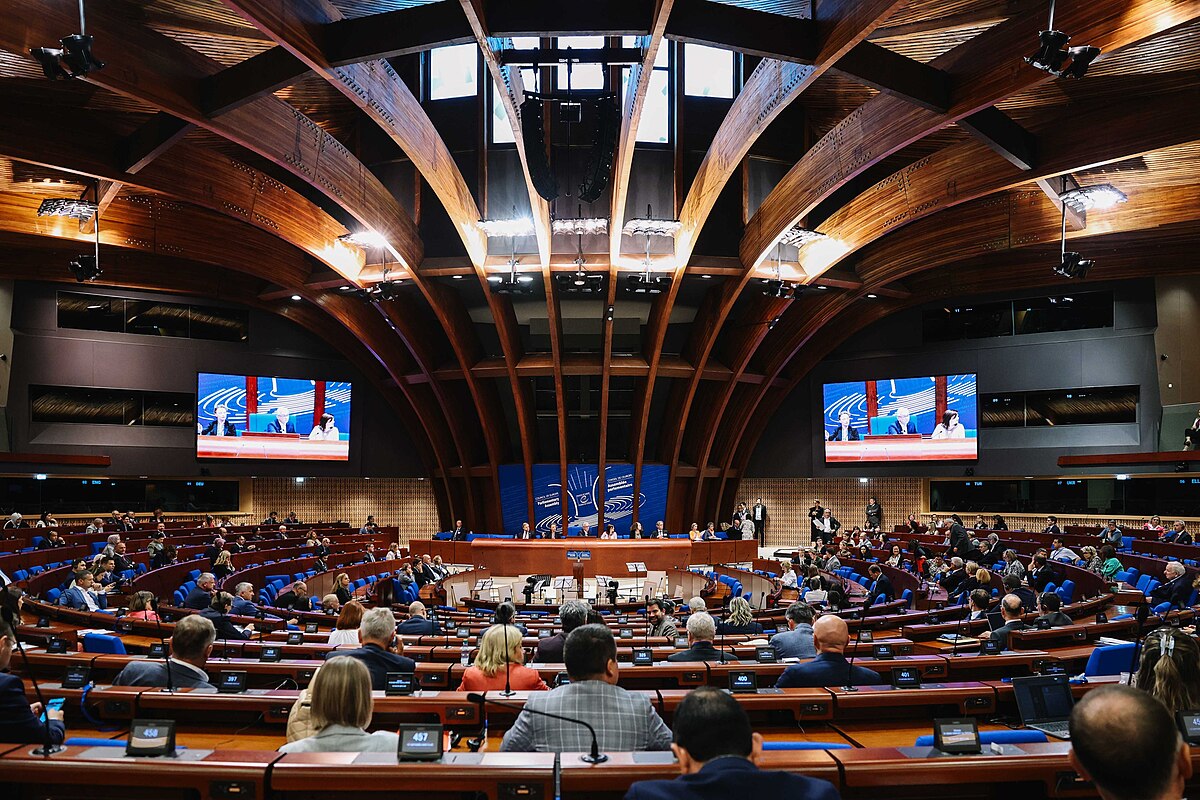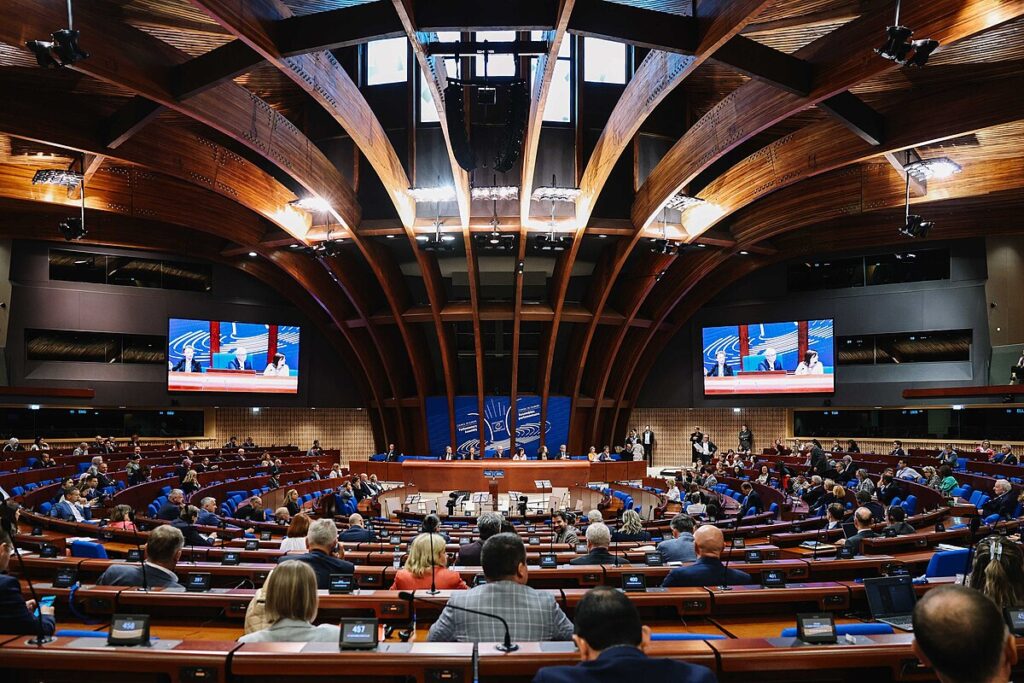Given the wide array of anti-speech laws throughout EU countries, the DSA allows the worst laws in any individual country to restrict speech across the entire bloc

Executive Director, ADF International
We are living in an unprecedented time in Western history for freedom of expression. With the fall of the Soviet Union, some made the claim that the “End of History” had arrived.
An era in which free speech would flourish in a world of liberal democracies and free markets. But it’s now clear that such hopes were sadly misplaced, and European societies are moving in an alarming direction.
Free speech is again under threat on this continent in a way it hasn’t been since the nightmare of Europe’s authoritarian regimes just a few decades ago. The internet is the frontline in this assault on free speech in Europe, particularly through the Digital Services Act, which I will come to shortly.
How We Got Here
But how did we get here? How did we get from the “End of History” and liberal democracy’s promise of free speech for all to the censorship crisis we face today?
Two words that perhaps are not often mentioned favourably in this parliament go a long way in explaining the antecedents of the current effort to control online discourse: Brexit and Trump.
As the honorary Brit at this event, I hope you will forgive me for saying the “b-word”. But all jokes aside, those two democratic votes in 2016 sent shockwaves through the political and media establishment, who then scrambled to understand what went wrong at the ballot box, and how no one saw it coming.
And rather than examining whether perhaps some of their mistaken beliefs about reality, assumptions about the citizenry, or missteps in governance may have been responsible for these seismic votes, those in power decided to blame so-called “misinformation” instead.
In other words, the people were tricked. Hundreds of millions of citizens were so prone to manipulation and brainwashing that they stupidly, wrongly, and ignorantly voted the “wrong” way. And such wrong voting must never happen again if democracy is to be saved. Hence, with no sense of irony whatsoever, the claim that democracy must be saved through censorship took hold – here in Brussels and across the Western world.
The European establishment’s response to outcomes it did not foresee or desire was stark and immediate, as new draconian anti-speech laws came into effect. Let me outline a few:
- 2016: The EU Code of Conduct against “illegal online hate speech” was announced without any discussion or debate.
- 2017: New national legislation such as the German Network Enforcement Act came into force.
- 2018: The EU launched a world first with its Code of Practice on Disinformation – targeting online platforms.
- 2019: The UN launched its Strategy and Plan of Action on Hate Speech.
- 2020: Covid-related provisions censored free speech around the world.
- 2021: The European Commission announced a plan to make so-called “hate speech” an EU-wide crime.
- 2022: In came the Digital Services Act, with most of its provisions coming into force in February 2024.
"Severe" Threat to Online Speech
Year after year, the relentless drive towards more and more speech restrictions continues – and it’s almost always under the guise of banning so-called “hate speech” and “mis- and disinformation.” These deliberately vague and subjective terms are rarely, if ever, defined in the legislation that seeks to ban them. And I am convinced that the lack of any meaningful definition is a design feature, not a bug.
And that brings me to the DSA itself – what I consider to be the most severe threat yet to free speech online. So, what precisely is so worrisome about this regulation?
The DSA purports to create “a safe online environment” by requiring very large online platforms, such as X or Meta, to remove “illegal content”.
This sounds ok so far. But when we look closer, the problems become apparent.
What, after all, is “illegal content”? Surely a law that runs to over 100 pages would define such a pivotal term in the most precise language possible?
Sadly not.
Article 3(h) gives us the circular definition that “illegal content” is anything that is not in compliance with EU law or the law of any Member State, now or at any point in the future. In other words, the DSA writes a blank cheque for censorship.
Given the wide array of anti-speech laws throughout EU countries, the DSA allows the worst laws in any individual country to restrict speech across the entire bloc.
And what happens in such a scenario?
European Commission's Power Over Regulation
Under the Act, the European Commission can impose crippling fines of up to 6% of global annual turnover on platforms that refuse to censor content – which could amount to billions of Euros.
The Commission can also restrict access to a platform within the EU or suspend its operations, showing the massive power this Act gives them over private companies. Since companies are threatened with huge fines if they do not censor enough speech, and there is no penalty whatsoever for censoring too much speech, what do we think these companies will end up doing over time?
Moreover, individuals across the EU could have their speech limited under the most draconian “hate speech” laws in any individual EU country due to the act.
The case of Finnish parliamentarian Päivi Räsänen, one of ADF International’s clients, gives a harrowing example of what censorship under the DSA could look like in practice.
Six years ago, Päivi posted a picture of a Bible verse and expressed her Christian views on sexuality on X. She was criminally prosecuted for alleged “hate speech” and has been unanimously acquitted in two trials. But the state prosecutor has appealed the case again. And shockingly, her case—in which she faces trial for posting online—is now pending before Finland’s Supreme Court.
Now, under the DSA, deeply problematic national laws restricting speech—like the “hate speech” legislation used to prosecute Päivi —could be broadly applied across the EU by this simple principle:
If it’s considered illegal in one place, it could be in every place. And I do mean every place.
The United States Weighs In
Even though the DSA is an EU regulation, since the internet is global and most speech platforms are global companies, its effects will not be confined to this continent. Vice President of the United States, JD Vance, already raised his concerns about the perilous state of freedom of expression in Europe during his Munich Security Conference speech.
Notably, the US has taken specific exception to this act, with both the US State Department and House Judiciary Committee raising concerns over it, and they have good reasons for doing so.
To name just two: Firstly, many of the companies the DSA targets, such as X and Meta, which could face massive fines for refusing to censor content, are American.
Secondly, we have already seen an example of a senior EU politician trying to use the act to censor speech in the United States.
Last summer, then-European Commissioner Thierry Breton shockingly wrote to Elon Musk ahead of his X interview with then-presidential candidate Donald Trump, warning him not to breach the DSA in the conversation.
It is conceivable that in the future we could see more efforts like this to extend EU censorship to silence speech outside Europe. All those who care about free speech should not accept a transatlantic divide on this indispensable liberty, where the US recommits to freedom of expression—as it has under the new administration—while Europe tramples on it. I want to now offer concrete recommendations on how the censorial effects of the DSA can be addressed, as people in this room are in a real position to take action.
It is thankfully the case that freedom of expression is guaranteed in Article 11 of the EU Charter, Article 10 of the European Convention on Human Rights and Article 19 of the International Covenant on Civil and Political Rights.
According to these and the jurisprudence of the ECHR, any limitations to free speech must be proportionate and necessary in a democratic society. And so, serious questions can and should be raised about whether the DSA is compatible with these binding obligations to protect freedom of expression. It is my strong view, as you may have guessed from this speech, that it is not. So, what can be done about this?
Member states could initiate an action for annulment before the Court of Justice of the European Union. Through this, the whole or parts of the DSA could be declared inapplicable, if they are deemed to infringe on the EU Charter or Treaties.
Conclusion: The DSA Has a Far-Reaching Censorial Impact
The same question, of considering whether the DSA is compatible with binding obligations to protect free speech, is key for the upcoming DSA review, in which the Commission must evaluate the act in view of other legal commitments.
It is imperative that every opportunity is taken in the review, which must occur by mid-November this year, to raise concerns about the censorial impact of the DSA.
This could be accomplished through written or oral questions to the European Commission and even by inviting Commissioner Henna Virkkunen to discuss the legislation in the European Parliament. After all, if the Commissioner is as in favour of freedom of expression as she claims to be, why would she refuse?
It is vital to include representatives of civil society, tech companies and digital rights groups in such conversations, as they can share their invaluable expertise on this important issue.
As elected representatives of your people, you are also in an excellent position to bring the public’s attention to the grave risks to free speech posed by the DSA. The truth is that every single European’s rights are jeopardized by this legislation. The more the public is aware of and speaks out about this, the more pressure the Commission will feel. And the more likely we are to defeat this law.
I want to close by emphatically stating that freedom of expression is essential for any society, and especially for democracies, to flourish. Those in positions of power turn to censorship because they don’t trust democracy.
They fear the people will choose to speak and vote in a way that they object to.
But this censorial impulse must be rejected. There is a rich history of valuing free speech on this continent. Europeans can and must draw on that tradition again today.
.



